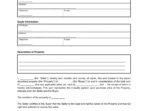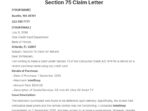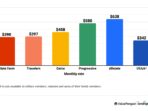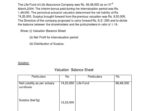Insurance Premium Tax Vat – Do insurance companies pay value added tax on claims? Surgery of the Complexity of VAT in insurance requirements can be felt as an unknown territory for many jobs. With complex rules about what may be needed and under what circumstances, it is easy to understand how confusion can lead to lost opportunities or expensive errors. This article provides a clear guide to owners, insurance companies and companies with the aim of discovering the problems related to value added tax on insurance transactions.
Whether you wonder whether your VAT will apply or how to maximize value added tax recovery, we break down the basic details you need to handle these financial aspects. Read more to discover how to prevent regular problems and make informed decisions about VAT and Insurance.
Insurance Premium Tax Vat

In order to manage the effective value added tax on insurance requirements, it is important to identify how to use VAT on our covered expenses under the claim of insurance services. The rules of these scenarios can be very different.
Vat On Indemnity Payments
VAT (VAT) is a consumer tax used in most goods and services sold in the UK. Standard renting is 20 %, although some goods and services are subject to a decrease in interest rates or exceptions. Companies are adding value added tax to sales and consumers pay the extra. In insurance requirements, value added tax may be due to the need for repair costs, replacement or professional costs.
In general, insurance companies do not pay their value added tax on insurance claims. Instead, the treatment of VAT is largely about how to deal with VAT in the need and production process. Here is a review of how VAT works on insurance requirements:
The recovery of value -added tax on insurance requirements depends on the requirements and nature of its costs. In this section, when it is possible to recover VAT and offers detailed samples, focusing on the various costs related to the requirements, including repairs and replacements.
When an insurance policy claims, it may incur costs of repair or replacement. If the added jobs are registered, it can usually recover the value added tax paid by these costs as input. This means that the company can raise VAT on HMRC, provided that the costs are directly related to its tax activities.
Autumn Budget 2024: Income Tax Thresholds To Rise From 2028
Example Scenario: A registered trade in VAT will damage the company’s vehicle. Cost of repair of 1,000 pounds plus 200 pounds of MVA. The insurance company repays the business for net repair fees (1000 pounds), and the company can retrieve 200 pound MVA as an input tax from HMRC.
In some cases, policy holders cannot retrieve value added tax on insurance claims. For example, if the value added tax is not or if the costs are related to exemptions, the VAT cannot be recycled. In addition, people who are not in business cannot return VAT on personal insurance needs.
Companies that are involved in taxpayers and exceptional activities face different challenges when recovering value added tax on insurance needs. These jobs must use minor exemption rules, which can complicate VAT recovery.

Exemption companies can only partially recover part of the value added tax they incur based on their taxable activities. It often includes complex calculations and careful maintenance.
The Stock Market Live
Example Scenario: A company that is 60 % exempt from office repairs that costs £ 2,000 plus 400 pounds of MVA. The insurance company refunds net fees (£ 2,000), and the business can only recover 60 % of the 400 pounds of MVA (240 pounds) from HMRC.
VAT recovery in insurance requirements requires full documentation and calculation for minor exemptions. The same minor distribution rules must be used to determine the amount of VAT that can be recycled.
Insurance requirements often include additional services such as legal advice and management requirements. These services are generally subject to VAT and add another layer of complexity for policy holders.
Various services such as legal counseling, damage evaluation and management requirements may be required when dealing with insurance requirements. These services are generally subject to value added tax, which means that the provider weighs the VAT service for its costs.
Earning A Commission, Surely That’s Not Subject To Vat?
Example scenario: A £ 1 business, £ 500 plus £ 300 VAT on the cost of attorney related to an insurance. If the business is registered, it can recover £ 300 MVA as input tax.
VAT owners may recover the value added tax paid in these services as input tax, provided that the costs are directly related to their tax activities. Unregistered individuals or companies that are only involved in exemption activities cannot recover this value added tax.
Compensation according to insurance may include goods or financial compensation. VAT treatment varies depending on the type of compensation.

Insurance compensation may have two forms: goods or financial compensation. VAT treatment is different for each replacement. When goods are delivered as a replacement, VAT is usually applicable. However, financial compensation is generally not subject to value added tax.
Vat Rates In Denmark
Example Scenario: A recorded value -added business of a 10, £ 10,000 plus £ 2000 MVA as part of an insurance case. The company can receive £ 2,000 VAT from HMRC. If, instead, it receives a cash settlement business, no value added tax will be involved.
Special rules may apply to high values such as vehicles or cars. Companies must be aware of these rules to ensure proper compliance with VAT regulations.
Companies often need help to recover VAT in insurance requirements. For example, a business error may require a value added tax at a cost that is not entirely related to tax activities and may lead to HMRC punishment and interest. Ensuring adaptation requires a clear understanding of value added tax laws and full maintenance.
Determining what is eligible as an entry tax and how you can claim can be quite complicated. Many companies are struggling with this, resulting in the loss of opportunity to extract value added tax or false claims. For example, if a business fails to understand how to use value -added tax laws in mixed assets, it may incorrectly claim the cost of recording.
A Guide To Insurance Premium Tax
The interpretation of the value added tax exemption applied to insurance services can lead to adaptation problems. While the premium is usually exempt from VAT, how to deal with related requirements can be confusing. For example, companies may apply VAT regulations to repair the services covered by incorrect insurance and thus incorrect VAT.
To solve these challenges and to ensure VAT regulations, companies must refer to HMRC guidance and the best way:
HMRC offers detailed booklets and guidance notes on value added tax recovery for insurance needs. Regular review of these resources helps companies understand specific needs and exceptions. You can find these resources on the HMRC website under the VAT guide.

Implementation of internal audits ensures that the value -added tax extraction methods match HMRC instructions. This progressive approach helps identify and correct problems before punishment.
What Is Tax Investigation Insurance And How Does It Work
Consulting with Value added tax consultants or legal experts for complex value added tax issues, especially cases where companies or high value are important. Professional navigation advice ensures precise HMRC regulations and can prevent costly errors.
Insurance companies usually do not pay VAT on insurance claims. Instead, the possibility of recovering VAT depends on the value added tax status and the nature of the costs related to it. While the premium is usually exempt from VAT, VAT can be recycled by registered VAT companies.
Understanding these rules and using the best practices, such as performing HMRC guidelines and maintaining precise things, is important for effective value added tax management. By staying conscious and active, companies can guide value added tax on insurance requirements with greater confidence and adaptation.
Representatives have represented politics and managed their insurance claims before World War I. We have a great expertise and experience in both domestic and commercial insurance requirements with the thousands of satisfactory holders who have received their decent insurance settlement. Without the need for pre -payment, our internal data shows that insurance requirements managed by professional loss evaluators that can expect up to 40 % above the claims by the holder.
National Insurance: What Are Ni And Income Tax Rates And What’s Changing?
If you have been rejected when trying to apply for your domestic or commercial insurance, we can help. We can also help professional services such as brokers, value and managers.
Headquarters 7-9 Balgores Lane, Gidea Park, Essex, RM2 5js London Midland Court, Victoria Road, Romford, RM1 2jh Midlands Phoenix Works, 500 King ST, Longton, Stike-ORD PER -TR -TR-97 Glaaset, glaaset, glaaset, glaaset, glaaset, glaaset, glaaset, glaaset, glaaset, glaaset, glaaset, glaaset, glaaset, glaaset, glaaset, glaaset, glaaset, glaaset, glaaset, glaaset, gleaset, gleaset, gleaset, gleaset Glaaset, Glaaset, Glaaset, Glaaset, Glaaset, Glaaset. Floor 1, 31 Don Gal Gal Galfast Street, BT1 2FG Dutch Stretter 30, 2292jl Irrigation, Zaid Holland, Netherlands
A limited representative of a limited group that is authorized and regulated by the Financial Behavior Organization (https://register.fca.org.uk/s/) enters the reference:

Government guidance on VAT confirms in various goods and services that most types of insurance services are exempt from VAT. Extensive insurance services include insurance and reinsurance transactions, insurance agents and medium capacity agents and insurance items as a separate commodity, but with other goods or services.
Portugal’s Tax For Expats: Rates, Residency & Benefits
There are times when you may have to pay the insurance value added tax. In some cases, insurance is provided as part of a single supply with other goods and services. If insurance is the most important supply element, this type of insurance is only exempt from VAT.
Government guidance states that “If you are exempt













